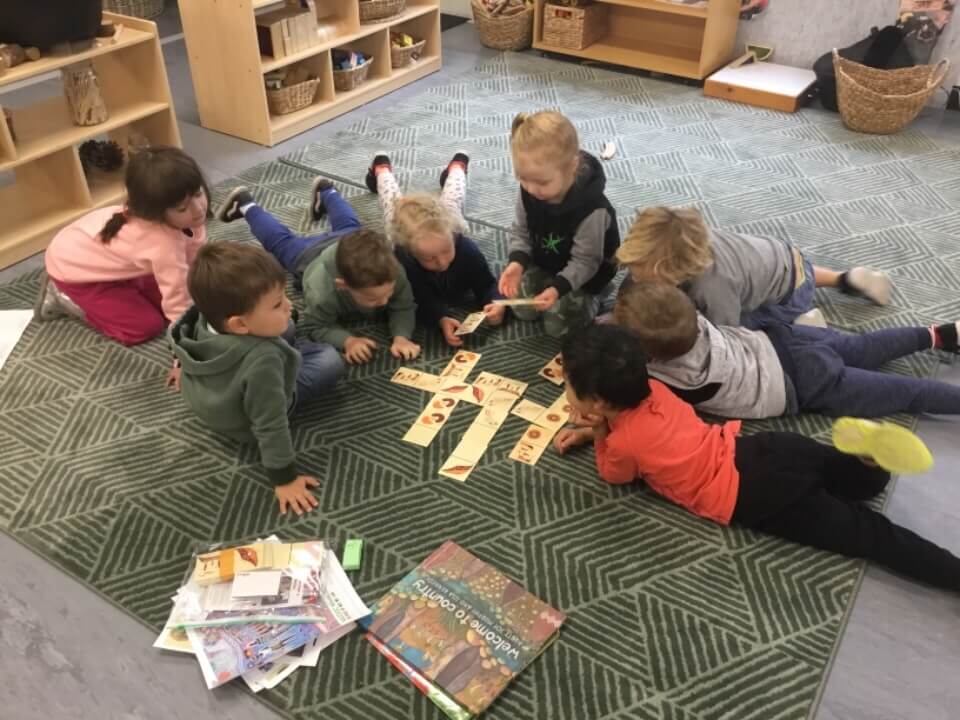Project based learning is becoming increasingly popular with educators around the world, and for good reason. Its an innovative and research backed teaching method which engages children’s minds in solving a problem or complex question, leading to them developing sound, real-life knowledge and critical thinking skills. Like most educational techniques, project based learning is not a standalone method, rather one meant to be incorporated into children’s learning to support their development of knowledge, literacy, numeracy, problem solving, critical thinking, teamwork and real-life skills. In this blog, we’re going to discuss the benefits of project based learning for children, by explaining what PBL is and how it positively impacts children’s learning.
What is Project Based Learning?
Project based learning, or PBL, is a dynamic pedagogy designed to promote children’s engagement through interest, deeper learning through real-life applications and high quality communication. According to the Buck Institute for Education, “Project Based Learning is a teaching method in which students gain knowledge and skills by working for an extended period of time to investigate and respond to an authentic, engaging, and complex question, problem, or challenge”. As its name suggests, this learning method centres around a focus question or problem that children work together to solve.
It is important to understand the distinction between authentic project based learning and projects themselves. For a traditional educational project, educators will present the unit content, and students will produce a project at the end to showcase their learning. However, in project based learning, the project forms the basis for the entire unit of work, as it is the vehicle for teaching the desired knowledge and skills that are being developed.
The Key Elements of Project Based Learning
- A challenging or complex problem or question
- A sustained inquiry process
- Student voice and choice throughout, from the conception of the inquiry to the finished product
- The integration of multiple learning areas
- The application of learning to real-life situations
- Authenticity
- A critical reflection process or feedback loop, which involves students’ critical assessment, reflection and refinement of their project and learning
- The production of a developmentally appropriate, polished product for a public audience
- Collaboration and teamwork to achieve the shared goal of discovering and acquiring new knowledge
What are the Benefits of Project Based Learning for Children?
There are a multitude of benefits of project based learning for both children and educators alike.
The Promotion of Lifelong Learning
Project based learning encourages children to become more independent and take on greater responsibility for their learning, the first step to lifelong learning. By enticing them to be excited about furthering their knowledge, it fosters a love of learning so they remain active in seeking new skills and information.
Authentic Assessment
While kindergarteners obviously are not ‘assessed’ in the way that school children are, part of an early childhood educator’s role is to track children’s progress and development. Project based learning aids this process, as it presents many opportunities for children to demonstrate their knowledge and skills in ways that align with their learning styles and show their capacity while working independently. Additionally, project based learning gives educators valuable insights into who a child is a person, and what they are interested in, fostering a positive, meaningful connection.
Encouragement of Child Involvement
Project based learning is, at its core, informed by the children who are engaging in the project, and as such, it provides a multitude of opportunities for children to be active in their learning. It supports them to think critically about questions as they are related to topics of interest, building their confidence and perseverance. Project based learning also lends itself incredibly well to accommodating a wide variety of learning styles, ages and stages together, which encourages cooperation and teamwork, building valuable social skills that your child will require throughout their life. Furthermore, through promoting a feeling of ownership of their work, project based learning encourages children to be vocal about their opinions, developing their autonomy as problem-solvers and instilling a sense of pride in their work.
Meaningful Learning and Deep Understanding
Project based learning supports children to become comfortable managing obstacles through developing robust problem solving skills and strong self-confidence, as reflection on one’s conclusion is instrumental in a continual inquiry process. This extended learning is possible because children are working to solve real-life issues which are important to them, and it provides opportunities for deep learning and comprehensive understanding of topics and concepts.
Nurtures Curiosity and Creativity
As we mentioned above, project based learning fosters a love of learning in children, and this is achieved through nurturing curiosity and creativity. Questions are celebrated in project based learning as they spark new methods of inquiry and new learning, allowing children’s natural curiosity to flourish. Through the exploration of many possible solutions, project based learning creates an environment where creativity thrives, fuelling children’s desire and capacity for innovation.
Here at Choklits Child Care, we seek to instil a love of learning in every child who enters our centres, and project based learning is one such vessel to achieve our purpose of building meaningful connections with children and fostering their independence, curiosity, critical thinking, self-confidence, capability and creativity.



